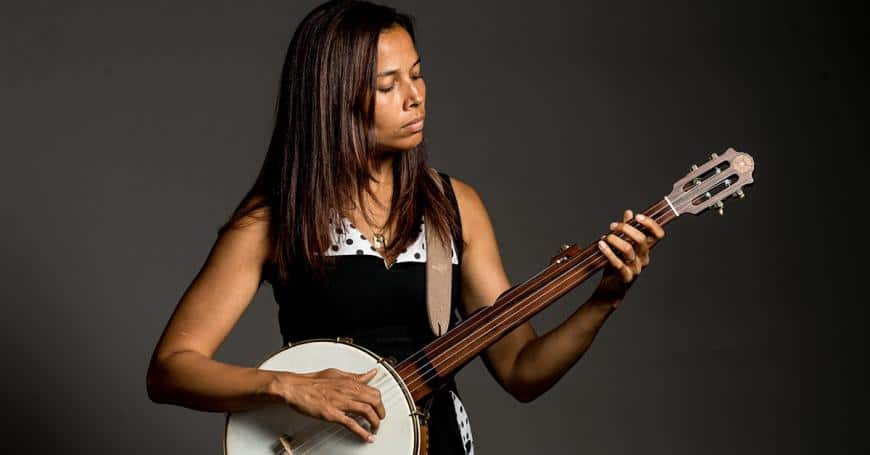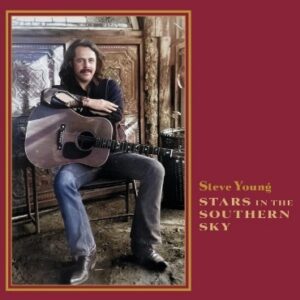James E. Akenson
Years ago during the Civil Rights movement Sonny Charles performed a song that stays with me to this day. Its intriguing how issues, lyrics, and melodies stay in your mind. Later, they become special in different ways that I couldn’t have expected when I first heard them.

Black Pearl makes a positive statement about African American women with a melody and lyrics that I’ve not forgotten. In fact, I’ve used Black Pearl in my teaching of social studies methods course at Tennessee Tech University as well as in classes out in the public schools.
The lyrics proclaim Black girl precious little girl you’ve been in the background much too long. The Black Pearl has been working hard much too long tending other people’s children and cleaning their houses. Black Pearl doesn’t really offer any solutions….voting, education, demonstrations….but does offer some romance in her lover’s arms. That lack of solutions, specific actions, might have been understandable for a popular 1960s Civil Rights era song. That’s not really helpful, though, for moving forward to solve a problem.
Black Pearl does indeed relate to a continuing concern in Country Music. The biggest issue deals with inclusiveness for Country Music to include women and men of color as well as the LGBTQ community. There is also an issue regarding Black women receiving equal air play on Country Music radio just like the issue for white females…actually ALL females…receiving Country Music airplay.
The issue of racial justice in the United States took center stage during the summer and fall of 2020 after the murder of George Floyd in Minneapolis, Minnesota. It continues with no likely end in sight. It even took on a bigger slice of the stage in Country Music as well.
Even with the major impact COVID-19 on Nashville tourism and Country Music concerts grinding to virtual halt, racial issues in Country Music took on a bigger focus than ever before. Race overtook concerns in social media about gender and Country Music discussions primarily spearheaded by white women. The long simmering concern of women not having equal airplay on Country Music radio waned somewhat in its intensity.
What could be discussed in Nashville about the African American influence on Country Music that wasn’t already known? Not just scholars, but lots of others know of the long-time interconnection between Country Music and African Americans. The connection of Country Music and African American influences have been frequently discussed at the International Country Music Conference and many books and journals.
The recent Ken Burns Country Music documentary included extensive discussions with Rhiannon Giddens dealing with the African American impact on Country Music.
Accounts of Jimmie Rodgers learning from African American railroad workers…gandy dancers is widely known. Blue Yodel Number 1…commonly known as T For Texas… followed a Blues style. Louis Armstrong and wife Lillian Hardin backed Jimmie Rodgers on Blue Yodel Number 9. We can thank the late beloved Nolan Porterfield for his detailed biography of Jimmie Rodgers and the African American influence on The Father of Country Music.
Hank Williams learned important guitar and performance technique from an African American named Tee Tot. The list goes on and on. Even the much-disliked Bro Country features a strong African American hip-hop influence.
Plenty, though….is the correct answer about discussing the African American presence in Country Music. The general Country Music audience and general population doesn’t have a handle on the African American influence or the number of African Americans who like Country Music. African Americans don’t feel welcome at Country Music concerts. And..they only hear a limited number of African Americans on Country Music radio or other media settings. That means that the Country Music industry itself continues to have subtle…and not so subtle barriers for African Americans.
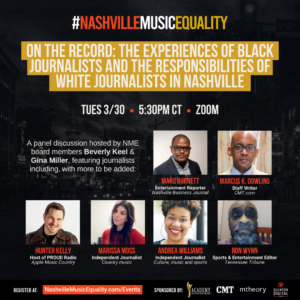
After attending lots of webinars by organizations such as #NASHVILLEMUSICEQUITY I came to four conclusions.
First, there still is a long way to go for inclusion and diversity to be standard in the Country Music industry….and even the music business in general.
Second, it will take commitment beginning at the top…and going down to the middle and even the bottom.
Third, it will take specific long-term strategies to drive diversity and inclusion forward. Walking into a room of all white male Country Music executives shouldn’t cut-it anymore.
Fourth, Country Charley Pride’s great song still holds true. The Easy Part’s Over Now states The easy part’s over now and the hard part’s begun. It is indeed difficult to work at inclusion and diversity for the long haul. It’s not a sprint. It’s a marathon. The metaphoric 26.2 miles will be a grind. A 13.1 mile half-marathon is impressive, but not acceptable.
Merle Haggard’s If We Make It Through December comes to mind as 2021 came to an end and we entered 2022. Into the late fall, the early winter of December, and winter 2022 the issues of the African American presence in Country Music at all levels continues to burn. Unlike Haggard’s optimistic view of where he and his family will be ‘come summertime,’ progress will probably be more incremental than what activists want from the Country Music industry.
Let’s look at some of the very latest discussions resonating loudly from Nashville.
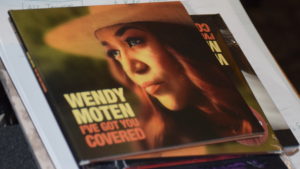 A National Public Radio (NPR) article described ‘How Black Women Reclaimed Country and Americana Music in 2021′. Reclaiming Country Music suggests that African American women at one time had a substantial hold on Country Music radio, Country Music sales, and attendance at Country Music concerts and festivals. Should they? Yes! Did they? The concern for the careers of African American women such as Linda Martel suggests that it has always been a struggle. Mickey Guyton’s recent breakthrough came after the intense discussions following George Floyd’s murder in Minneapolis, Minnesota.
A National Public Radio (NPR) article described ‘How Black Women Reclaimed Country and Americana Music in 2021′. Reclaiming Country Music suggests that African American women at one time had a substantial hold on Country Music radio, Country Music sales, and attendance at Country Music concerts and festivals. Should they? Yes! Did they? The concern for the careers of African American women such as Linda Martel suggests that it has always been a struggle. Mickey Guyton’s recent breakthrough came after the intense discussions following George Floyd’s murder in Minneapolis, Minnesota.
The NPR article rightfully points out the talent, presence, and visibility of women such as Amythyst Kiah, Miko Marks, Valerie June, Sunny Adia Victoria, Allison Russell, Joy Oladokum, Yola, Chapel Hart, Lilli Lewis, Kamara Thomas, Mickey Guyton, and others. They have made an impact. Deserving and talented? Yes! Are some like Yola being featured in high profile sources such as Rolling Stone? Yes! Are they dominating the Country Music radio playlists and other success indicators? Not really. Even white women weren’t dominating Country Music radio.
What about someone like Jason Isbell. Is he doing his part by featuring African American women during his recent Ryman Auditorium residency?
The title certainly says a lot. Isbell is tired of Country Music’s Love Affair of White Nostalgia. That also relates to the bigger topic of historical memory but we’re not going down that rabbit hole this time. Wait for a separate www.internationalcountrymusic.net article on historical memory in the future.
Isbell had different African American women open for him during his Ryman Auditorium residency. Like symbolism? The Ryman is symbolically a big deal. It’s become The Mother Church of Country Music although it wasn’t always as loved and iconic as it is today.
Isbell’s using African American women as the opening act for his residency sends loads of messages. Namely…women are important to the past, present, and future of Country Music. In particular, African American women are important to the past, present, and future of Country Music. All African Americans are important to the past, present, and future of Country Music.

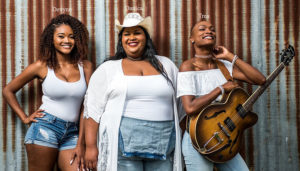
Mickey Guyton, Amythyst Kiah, Brittney Spencer, Adia Vicatoria, Shemekia Copeland, and Joy Oladokun and Allison Russell all opened for Isbell during his Ryman residency. Isbell hopes they won’t be opening acts for long. There are so many other Black Pearls as well. Just think about Chapel Hart, Bridgett St. James, and Wendy Moten to name but a few. Will it happen? Let’s hope so.
Issues related to race and gender in Country Music are likely to be hotly debated and explosive for the future. Take a look at the strong reactions to journalist Geoffrey Himes comments in the Nashville Scene.

The discussion swirled around Himes views about the history of the African American influence on Country Music and comments about specific artists such as Allison Russell. One FaceBook commentator stated “My eyes damn near rolled out of my head reading that.” You’ll have to check out the links and explore in detail as the issues are rooted deeply in race and gender. In other words, race and Country Music create strong reactions that years ago wouldn’t have seen the light of day.
Getting back to Black Pearl. Have Black Pearls been in the Country Music background much too long? Yes indeed! At all levels from artists to Country Music executives. Yes indeed!
African Americans have not only influenced Country Music, but have been fans of Country Music as well. As fans, artists, and Country Music industry talented professionals, African Americans see themselves as deserving inclusion at all levels. Agreed!
Will talented African American women in particular be systematically included? Hopefully yes. If so, then the multiple discussions after the murder of George Floyd will have yielded the fruits of their intensive labors. I’m a believer it SHOULD happen. This noble goal, though, might be more elusive than we would hope.

